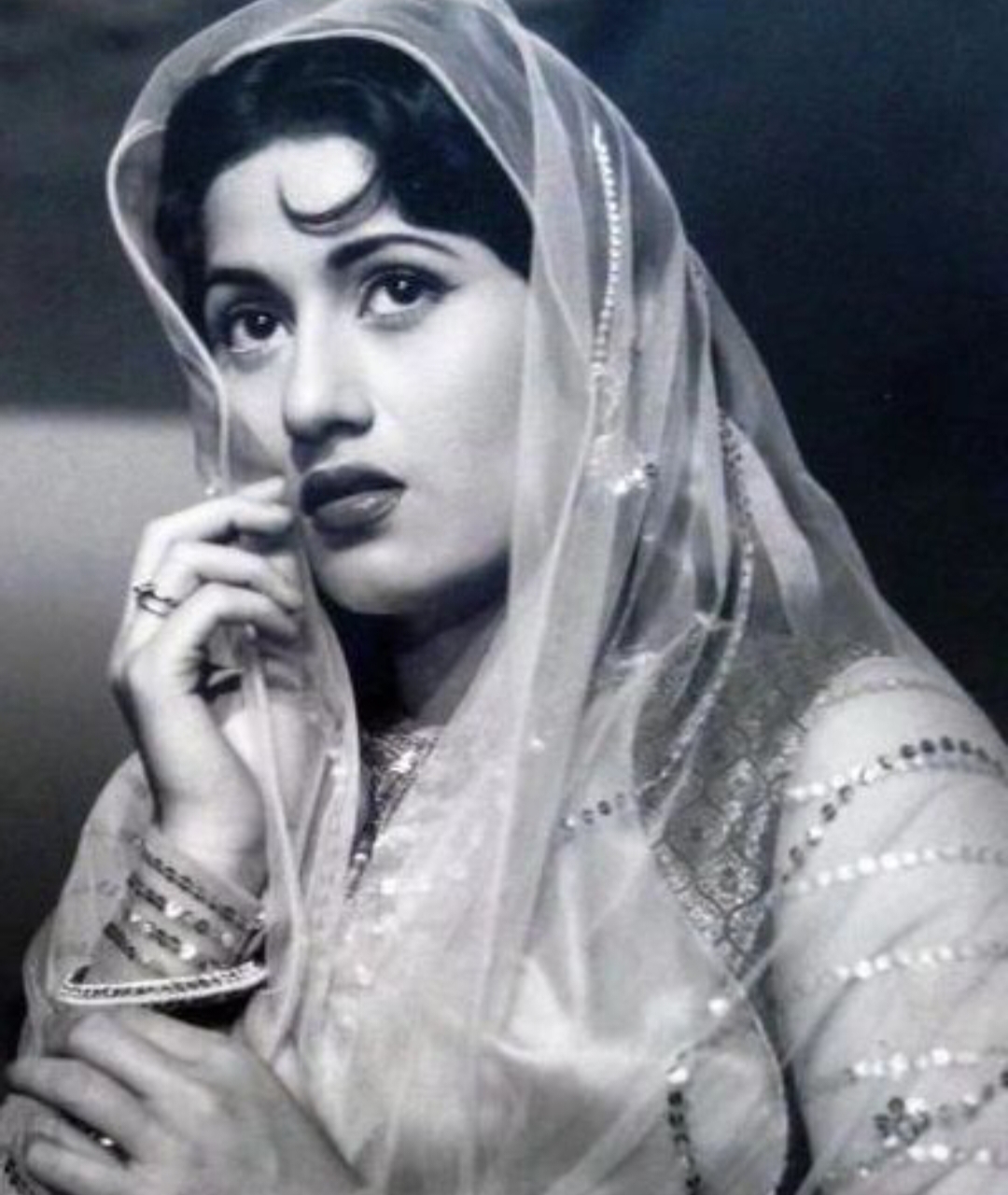In the glittering realm of Bollywood, there are few stars whose allure transcends generations, captivating audiences with their timeless beauty and unparalleled talent. Among these luminaries stands Madhubala, the epitome of grace, elegance, and charisma. Born on February 14, 1933, as Mumtaz Jehan Begum Dehlavi, she would become an icon known and cherished as Madhubala.
Madhubala’s journey to stardom began at a young age when she made her acting debut as a child artist in the film “Basant” (1942). Her exceptional acting skills and enchanting beauty soon caught the attention of filmmakers, leading to starring roles in numerous films throughout the 1940s and 1950s.
However, it was her mesmerizing performance in the timeless classic “Mughal-e-Azam” (1960) that immortalized her as one of Indian cinema’s greatest legends. Portraying the role of Anarkali, Madhubala’s portrayal of unrequited love opposite Dilip Kumar’s Emperor Akbar remains etched in the hearts of audiences worldwide. Her ethereal beauty, graceful dance moves, and emotive expressions brought the character to life, earning her widespread acclaim and adoration.
Beyond her cinematic achievements, Madhubala was also celebrated for breaking barriers and challenging societal norms. In an era when conservative values dominated Indian society, she defied conventions with her independence, confidence, and assertiveness. Her on-screen persona exuded strength and resilience, inspiring countless women to embrace their individuality and pursue their dreams.
Despite facing personal challenges and health issues, Madhubala’s passion for acting never waned. She continued to mesmerize audiences with her performances in films like “Barsaat Ki Raat” (1960), “Chalti Ka Naam Gaadi” (1958), and “Howrah Bridge” (1958), showcasing her versatility as an actress.
Tragically, Madhubala’s life was cut short at the young age of 36 due to a congenital heart condition. However, her legacy endures through her timeless films, which continue to captivate new generations of cinephiles. Her influence extends beyond the silver screen, leaving an indelible mark on Indian cinema and inspiring future generations of actors and actresses.
Today, Madhubala is fondly remembered as the “Venus of Indian Cinema” and the “Marilyn Monroe of Bollywood,” symbolizing beauty, grace, and timeless elegance. Her contributions to Indian cinema remain unparalleled, and her legacy serves as a beacon of inspiration for aspiring artists worldwide.
In commemorating the extraordinary life and legacy of Madhubala, we celebrate not only her cinematic brilliance but also her enduring spirit, which continues to shine brightly in the hearts of millions. As we revisit her timeless films and iconic performances, we pay tribute to a true Bollywood diva whose beauty and talent knew no bounds.

